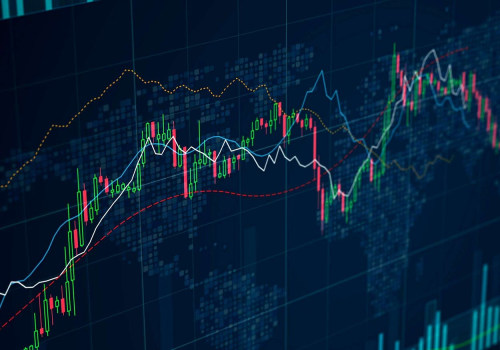When it comes to investing, choosing the right broker is essential. Investing can be risky, and it’s important to know what kind of protection you have when making trades. That’s why it’s important to understand the difference between regulated and unregulated brokers. In this article, we’ll discuss the differences between regulated and unregulated brokers, what you should look for in a broker, and how to choose the best broker for your needs. Choosing a broker for your binary options trading can be a difficult decision.
One of the most important factors to consider is whether the broker is regulated or unregulated. In this article, we will explore the differences between regulated and unregulated brokers, and discuss the implications of choosing one type of broker over another. A regulated broker is one that is required to abide by the laws and regulations of the country in which it operates. These regulations are in place to protect traders from fraud and other financial risks. By choosing a regulated broker, traders can be sure that their funds are safe and secure and that they are dealing with a trustworthy partner. The different types of regulation vary from country to country, but most regulated brokers are required to adhere to certain standards.
In the European Union, for example, brokers must be authorized and regulated by the Financial Conduct Authority (FCA) or another European regulatory body. Other examples of regulatory bodies include the Commodity Futures Trading Commission (CFTC) in the United States and the Financial Services Authority (FSA) in Japan. Regulated brokers must also comply with certain standards when it comes to customer service, transparency, and pricing. They must provide detailed information about their services, fees, and any other charges, as well as abide by rules on how customer funds are handled. In some cases, they may also be required to offer a certain level of customer support. On the other hand, unregulated brokers are not subject to any laws or regulations.
This means that they are not required to abide by any rules or standards, which can make it difficult for traders to know if their funds are safe and secure. Unregulated brokers often offer lower fees and commissions than regulated brokers, but this comes with its own risks. For example, there may be no guarantee that traders will receive their funds back if something goes wrong. When choosing a broker, it is important to consider both the advantages and disadvantages of regulated and unregulated brokers. Regulated brokers generally offer more security and protection for traders’ funds, but they may also have higher fees and commissions.
Unregulated brokers may offer lower fees and commissions but they come with an increased risk of fraud or other financial losses. It is up to each individual trader to decide which type of broker best suits their needs. In order to identify a regulated broker, traders should check whether the broker is registered with an official regulatory body such as the FCA or CFTC. It is also important to look out for any warnings or complaints from other traders about the broker. Finally, traders should always read the terms and conditions carefully before signing up with any broker. When trading with an unregulated broker, it is important for traders to stay safe.
This means avoiding any brokers that claim to offer guaranteed returns or that offer bonus schemes that seem too good to be true. Traders should also be wary of any brokers that ask for upfront fees or that require large deposits before trading can begin. Finally, when choosing a broker for binary options trading it is important to keep in mind any additional considerations such as the trading platform offered by the broker, the types of assets available to trade, and any special features such as mobile trading or automated trading systems.
What Is an Unregulated Broker?
An unregulated broker is a broker that is not subject to governmental oversight or regulation. These types of brokers are often found in the Forex and binary options trading markets, and while they may offer attractive terms and trading conditions, they lack the safety of working with a regulated broker. When you work with an unregulated broker, it is important to understand that there is no guarantee that your funds are safe and secure.This type of broker may not adhere to the same stringent regulations as a regulated broker, and as such, it is important to exercise caution when considering an unregulated broker for your trading needs. In addition, there are some fraudulent brokers that operate in the unregulated market. It is important to do your research before selecting an unregulated broker and be sure to confirm that it is a legitimate operation. Examples of unregulated brokers include: StoxMarket, BinaryMate, UFX, BinaryBook, and IQ Option.
How Can I Identify a Regulated Broker?
When choosing a broker for binary options trading, it is important to consider whether the broker is regulated or not. A regulated broker is subject to oversight and monitoring by a regulatory body, which helps to ensure that the broker is compliant with industry standards and regulations. In this article, we will discuss how to identify a regulated broker.License Information
The first step in identifying a regulated broker is to verify that the broker holds the necessary license or authorization from a regulatory body. Most brokers will provide this information on their website, including information about the regulatory body that issued the license.Alternatively, you can contact the broker directly for more information about their license.
Regulatory Body
It is also important to identify which regulatory body the broker is registered with. Different countries have different regulatory bodies and regulations. For example, in the United States, brokers must be registered with the U.S. Commodity Futures Trading Commission (CFTC) or the National Futures Association (NFA).In the United Kingdom, brokers must be authorized by the Financial Conduct Authority (FCA). It is important to ensure that the broker is properly licensed with an appropriate regulatory body.
Additional Information
In addition to verifying the broker’s license information, it is also important to look for other signs that the broker is legitimate. This includes checking for reviews of the broker online, as well as looking for information about any disciplinary action that has been taken against the broker by a regulatory body. Additionally, it is important to make sure that the broker’s website is secure and encrypted, and that all funds are held in segregated accounts.Advantages and Disadvantages of Regulated and Unregulated Brokers
When it comes to choosing a broker for your binary options trading, there are two main types of brokers to consider: regulated and unregulated.Both have their advantages and disadvantages, so it is important to understand the differences between the two before making a decision.
Regulated Brokers
Regulated brokers are those that have been authorized by a government regulatory body such as the U.S. Securities and Exchange Commission (SEC) or the U.K. Financial Conduct Authority (FCA).These agencies require brokers to adhere to certain standards in order to protect investors, such as safety of funds, fair trading practices, and customer service. The advantages of choosing a regulated broker are that they must adhere to strict rules and regulations set by the regulator, so they are likely to be more reliable and trustworthy. Additionally, regulated brokers must provide customer protection insurance, which can provide an extra layer of security for traders.
Unregulated Brokers
Unregulated brokers are those that are not subject to any regulatory oversight or licensing requirements.These brokers may be more risky and less reliable than regulated brokers. The main advantage of choosing an unregulated broker is that they are often able to offer lower fees and better returns than regulated brokers due to less overhead costs. However, it is important to remember that unregulated brokers are not subject to the same standards as regulated brokers, so it is important to do your research before investing with an unregulated broker. In conclusion, when it comes to choosing a broker for your binary options trading, it is important to consider both the advantages and disadvantages of regulated and unregulated brokers.
Regulated brokers provide more security for traders, but may charge higher fees, while unregulated brokers may provide lower fees but may be less reliable. Ultimately, it is up to the individual trader to decide which type of broker is best for them.
What Is a Regulated Broker?
A regulated broker is a financial services provider that is monitored and authorized by a government regulatory body. These regulatory bodies ensure that a broker adheres to certain standards of conduct and provides fair and transparent services to its clients. Examples of regulatory bodies include the U.S.Securities and Exchange Commission (SEC), the Financial Industry Regulatory Authority (FINRA), the U.K. Financial Conduct Authority (FCA), and the Australian Securities and Investments Commission (ASIC).Regulated brokers must follow the regulations imposed by these regulatory bodies, which include strict rules around client funds, trading practices, transparency of operations, disclosure of information, and more. As such, regulated brokers are often seen as more reliable than their unregulated counterparts. Regulated brokers also typically provide additional services such as research and analysis tools, educational resources, customer support, and more.
These features help traders make informed decisions about their trades. Choosing a broker for your binary options trading can be a difficult decision, but understanding the differences between regulated and unregulated brokers can help you make an informed choice. Regulated brokers are subject to strict regulations and must comply with strict guidelines to protect their clients, while unregulated brokers are not subject to any regulations. When choosing a broker, it is important to identify whether they are regulated or not. Regulated brokers offer increased protection and security, while unregulated brokers may pose greater risks.
Before choosing an unregulated broker, traders should perform due diligence and be aware of the potential risks associated with trading on an unregulated platform.






